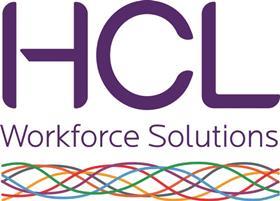NHS leaders need to take greater ownership of day to day workforce management in their organisations if the health service is to grasp the tough challenges ahead

This is a sponsored comment from HCL Workforce Solutions

Since my first comment piece, I am encouraged to see progress has been made in addressing some of the workforce challenges faced by the NHS today. Specifically, I would highlight the welcome temporary inclusion of nurses on the shortage occupation list for tier 2 migration.
However, we must not sit back and wait for wider system changes such as this to take effect. Unless NHS leaders take greater ownership of day to day workforce management in their own organisations, the impact will be limited.
HCL Workforce Solutions is excited to be part of the ongoing HSJ workforce investigation – it presents an opportunity to generate awareness about operational improvements and innovations that could be adopted now to deliver improvements for the longer term, rather than simple quick fixes for the short term.
Doing this requires NHS organisations to embrace technology that’s fit for purpose in today’s world. It is certainly not an easy task, but a necessary journey that requires the most senior trust figures to take the driving seat.
We must not lose sight of the fact that temporary staff do make an important contribution to the NHS.
Right direction
The agency sector does require better regulation and the Department of Health and NHS England’s focus on change suggests a move in the right direction.
The banning of off-framework agencies and the implementation of sensible caps can be used to stop pay escalation, as agencies compete for workers. But the proposed caps to align substantive and agency pay appear to miss the point – contingent workers need to be rewarded for providing flexibility to the system.
Failure to reward will simply exacerbate the challenges as agency workers, especially nurses, leave the profession and take alternative employment.
The proposed design of pay and commission in the agency sector will undoubtedly encourage the flagrant non-compliance of workers with NHS Employers clinical standards, as this activity, when conducted properly, is one of the largest costs an agency incurs.
As margins are squeezed, corners will be cut. The DH was right to ban off-framework activity in the nursing profession. This measure must be extended across all staff groups and used as the vehicle for change; tougher, transparent framework auditing – both clinical and financial – will improve clinical standards and drive down pricing.
My last article claimed there is reason to be optimistic about workforce management; I stand by that and commend all officials and policymakers who are pushing the agenda forward. But a phased and carefully considered approach is vital to avoid unintended consequences of increased costs and jeopardised patient safety.
Claire Billenness is managing director of client solutions at HCL Workforce Solutions.


























No comments yet